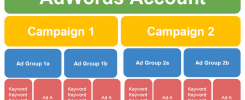Sometimes businesses can be their own worst enemy. Especially when it comes to SEO. People often create bad habits that become difficult to kick.
I’ve worked with hundreds of businesses and agencies on marketing and SEO campaigns. This experience has taught me what works, and what doesn’t… frequently the hard way. Today, I want to share some of the top mistakes that I see new online entrepreneurs make when it comes to SEO. Take note and learn from my mistakes!
Why Businesses Face SEO Self-Sabotage
I’ve seen businesses put huge amounts of time and effort into SEO pushes only to end up discouraged because they don’t see an improvement. They work with a bare-bones knowledge of SEO, but they don’t invest the time to make a real, positive difference in their rankings. Plus, many businesses (and marketers) work using outdated SEO principles. This presents a huge advantage for you and I, who are willing to stay up-to-date.
Without reliable knowledge, some efforts actually end up hurting instead of helping.
I get it—learning a bunch of technical language about behind-the-scenes web work doesn’t get most people as excited as creative planning and making sales. But if you really want to make a difference in your overall business strategy, you need to take the time to learn about effective SEO strategies.
It’s ok if you just learn a little at a time and implement as you go. While you may see some immediate results trending up, SEO takes time to make its impact through search engines. Business owners need to be patient in order to see successful results over the long run.
As you work toward improving your SEO and implementing a strategy, let me share some of the most common mistakes I’ve noticed businesses make.
6 SEO Mistakes to Avoid
Get informed about these common SEO mistakes, so you can avoid them:
- Following Outdated Information
While you think you’ve got a solid SEO plan in place, watch out for old standards and practices. These might hurt you and cause more work in the long run.
Keep up with changes to search engine algorithms. While some strategies may have improved rankings in the past, they don’t work as well anymore. Do you follow Google’s blog and Twitter? Can you give a 30-second speech about the latest changes in SERPs? If not, you have work to do.
Also, get all your clients onto Google My Business, especially local brick-and-mortar shops.
On top of this, Google gives you the tools (for free!) that you can use and learn from when it comes to improving rankings in search engines and keeping track of analytics and algorithms. These include Keyword Planner and Google Analytics. They want you to succeed in their network, so take advantage of their resources.
- Overly Wordy or Lengthy Content
More does not always equal better. I run into this problem frequently with new business owners. You don’t need longer content just to fill up web pages—you need quality content. Think about filling your pages over time with valuable information that helps users.
Duplicating keywords won’t work for you, either. In fact, it will more than likely hurt you when your pages start competing on SERPs (Search Engine Results Pages). Drop those keywords strategically throughout your site instead of trying to stack them, and you’ll get much better results.
- Inaccurate or Vague Descriptions
On the other hand, some businesses don’t include enough content on their website. Don’t miss out on potential customers because of a lack of information available for search engines to pick up. If you don’t include any kind of copy or content, search engines won’t have a way to draw on keywords.
Descriptions should match product features. You also have to distinguish related products and services from your own, especially if you don’t offer all of them. This comes up frequently when dealing with parts or products versus services. Businesses can unintentionally mislead and end up missing customer searches because of inaccurate word choices.
I suggest having a homepage, a products/services page, directions and contact info, and a blog to start. Make sure the information on all of them is current and useful to the reader.
- Not Keeping Track of Changes
Unfortunately, SEO autopilot doesn’t exist.
You need to know how the SEO changes you make affect your rankings, conversions, and engagement. You’ve got to make sure your website stays up-to-date and keep tweaking your SEO. It will take several months to see the extent of your results. Don’t give up and try to make “quick changes” that actually end up negatively influencing Google’s rankings.
For all of my marketing campaigns, I just change one thing at a time. Then, I wait a few days to see how it changes the results. I make decisions based on data, not intuition or impatience. I also use a spreadsheet to track all the tweaks and their direct results. In other words, you have to get nerdy if you want to succeed long-term.
- Poor User Experience
These days, ignoring the fact that users search from a variety of devices will cause detrimental results. Mobile browsers require a different experience than desktop browsers, and most people regularly search the internet from a phone. If you don’t have a mobile interface, it will end up hurting your business.
Another problem is slow loading times. Potential customers will likely leave your site if it doesn’t load within a few seconds. You can test your loading speeds with another Google tool: Google Pagespeed Insights. If it’s slow, it could have to do with your web-host service, broken links, or issues with your database.
- Cater to Local Markets
Of course, you never want to neglect local markets. They can be one of your biggest assets.
To implement some local SEO, be sure to include basic contact information, like your physical location, address, and phone number, in easy-to-read places. Register on Google Maps, second party sites like Yelp, and any other local promotional resources, like local coupon apps. Use regional keywords throughout your website and in title tags.
Build a loyal customer base with locals, and you’ll have a reliable stream of customers who also recommend your business.

